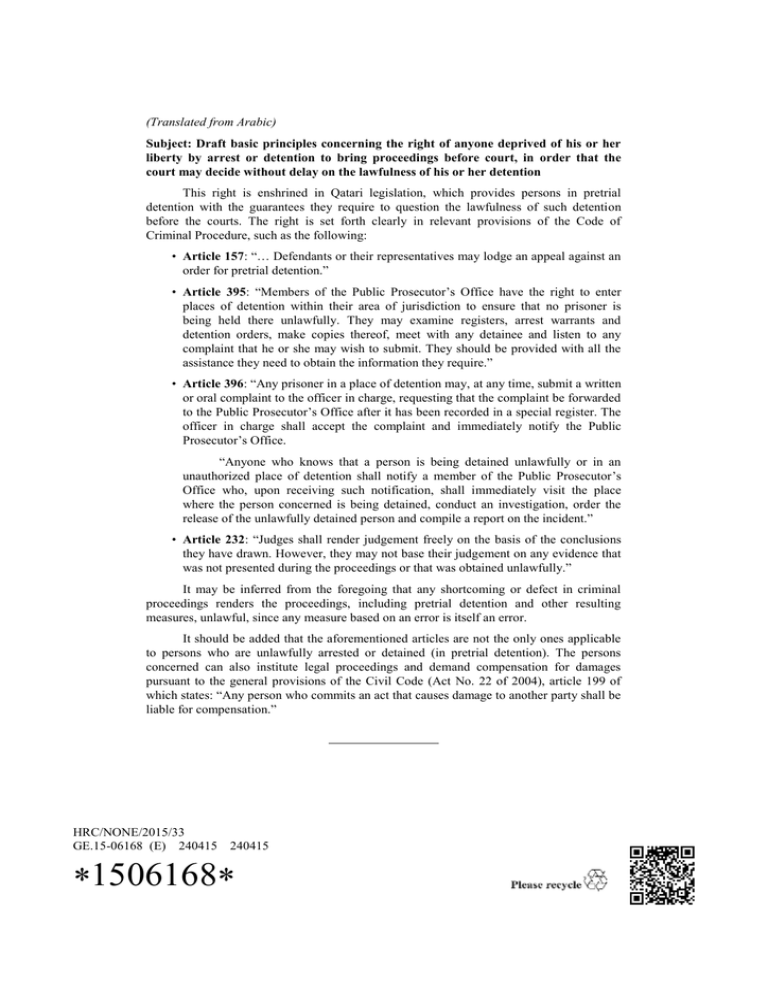(Translated from Arabic)
advertisement

(Translated from Arabic) Subject: Draft basic principles concerning the right of anyone deprived of his or her liberty by arrest or detention to bring proceedings before court, in order that the court may decide without delay on the lawfulness of his or her detention This right is enshrined in Qatari legislation, which provides persons in pretrial detention with the guarantees they require to question the lawfulness of such detention before the courts. The right is set forth clearly in relevant provisions of the Code of Criminal Procedure, such as the following: • Article 157: “… Defendants or their representatives may lodge an appeal against an order for pretrial detention.” • Article 395: “Members of the Public Prosecutor’s Office have the right to enter places of detention within their area of jurisdiction to ensure that no prisoner is being held there unlawfully. They may examine registers, arrest warrants and detention orders, make copies thereof, meet with any detainee and listen to any complaint that he or she may wish to submit. They should be provided with all the assistance they need to obtain the information they require.” • Article 396: “Any prisoner in a place of detention may, at any time, submit a written or oral complaint to the officer in charge, requesting that the complaint be forwarded to the Public Prosecutor’s Office after it has been recorded in a special register. The officer in charge shall accept the complaint and immediately notify the Public Prosecutor’s Office. “Anyone who knows that a person is being detained unlawfully or in an unauthorized place of detention shall notify a member of the Public Prosecutor’s Office who, upon receiving such notification, shall immediately visit the place where the person concerned is being detained, conduct an investigation, order the release of the unlawfully detained person and compile a report on the incident.” • Article 232: “Judges shall render judgement freely on the basis of the conclusions they have drawn. However, they may not base their judgement on any evidence that was not presented during the proceedings or that was obtained unlawfully.” It may be inferred from the foregoing that any shortcoming or defect in criminal proceedings renders the proceedings, including pretrial detention and other resulting measures, unlawful, since any measure based on an error is itself an error. It should be added that the aforementioned articles are not the only ones applicable to persons who are unlawfully arrested or detained (in pretrial detention). The persons concerned can also institute legal proceedings and demand compensation for damages pursuant to the general provisions of the Civil Code (Act No. 22 of 2004), article 199 of which states: “Any person who commits an act that causes damage to another party shall be liable for compensation.” HRC/NONE/2015/33 GE.15-06168 (E) 240415 240415

